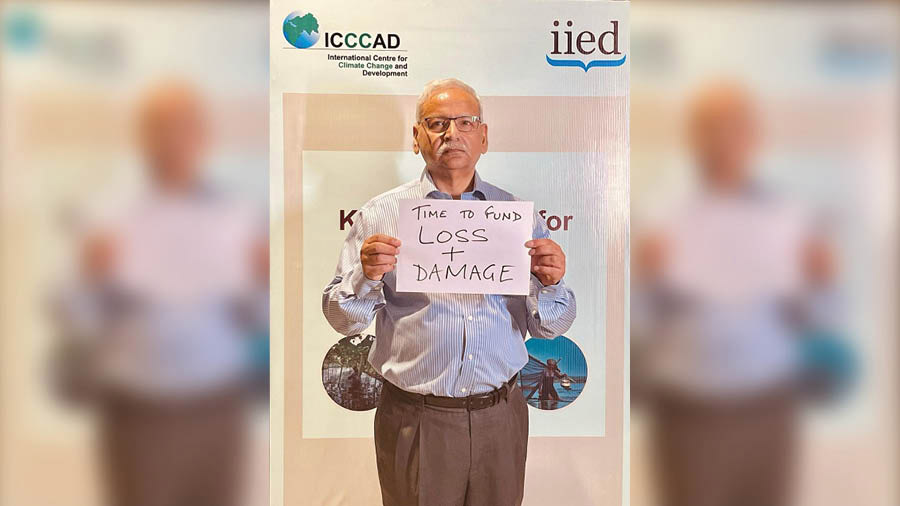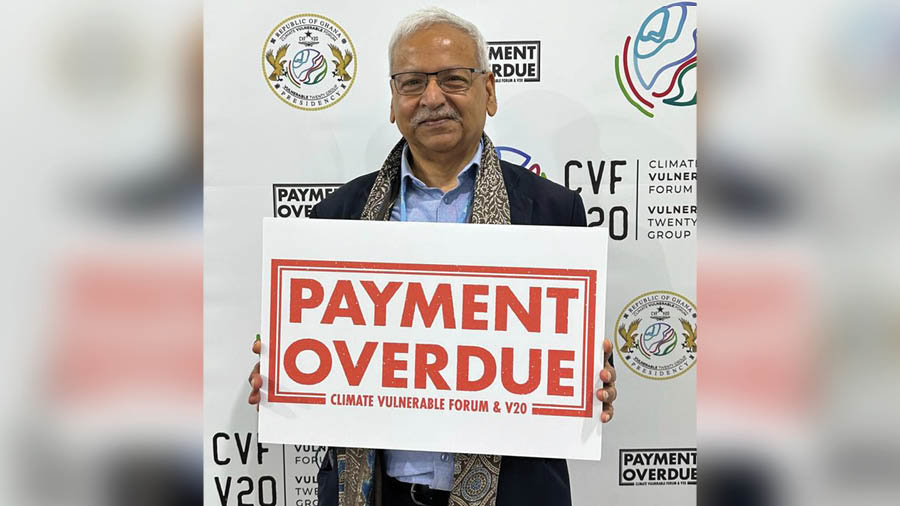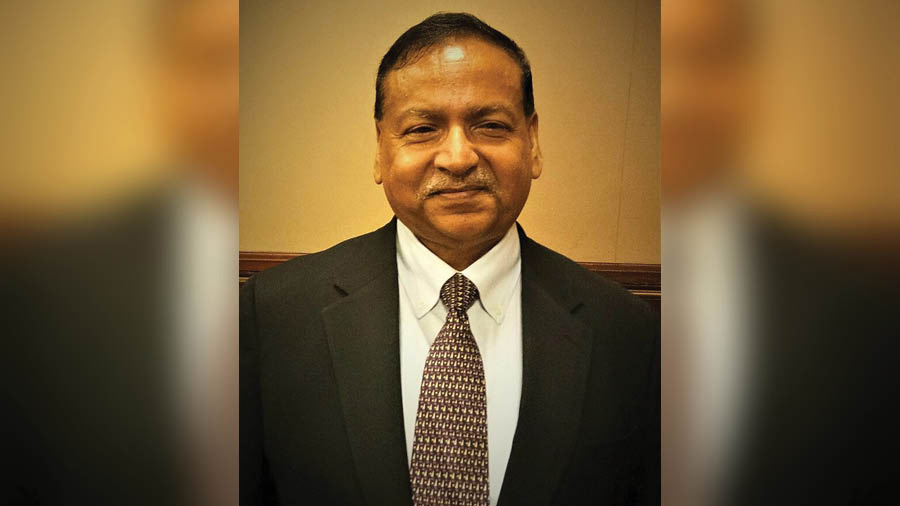The walk was long from one end of Poland National Stadium to another to meet Saleemul Huq for the first time for an interview on the sidelines of COP19 in Warsaw in 2013, but every step was worth it.
A series of emails (WhatsApp was yet to change communication and accessibility) was exchanged before the interview with Huq, climate scientist-cum-activist and adviser to least developed countries rolled into one, before a 10-minute interview could be set up. But the conversation continued for over half an hour before Huq had to rush to another meeting.
A journalist's delight
Huq was a journalist’s delight with extremely pointed comments paired with deep-dive analysis and the interview triggered an association that continued over the last decade and included several official interviews and more unofficial interactions with the Sunderbans being a common thread of interest, till he breathed his last on Saturday.
“He became unwell immediately after his birthday in early October with lung infection and fever; had to be hospitalised, returned to his Gulshan home; and was scheduled to travel to Bangkok for treatment soon, but unfortunately the worst happened on Saturday night,” said a close associate.
Huq is survived by his wife, son, and daughter and hundreds, if not thousands, of climate followers. Social media has been flooded with messages of mourning from those mentored by him. “Saleemul Huq sir is no more, we lost our guardian,” wrote Noor Elahi, a close associate at the International Centre for Climate Change & Development (ICCCAD), of which Huq was the founding director.
A Bangladeshi-British citizen, Huq was appointed Officer of the Order of the British Empire (OBE) in the 2022 and received the National Environment Award from the Government of Bangladesh in 2020 for his contribution towards combating climate change. He was also a professor at Independent University, Bangladesh, and part of the advisory committee to the presidency of COP 28 in UAE, and contributor to several IPCC and other premier UN reports.
He was part of all climate summits
“I am perhaps one of the few persons who has been part of all the COPs since it began” said Saleemul saab, as I used to call him, about a month ago when I last interviewed him on the prospects of COP28 and IPCC reports flagged of concerns and underlined the importance of strengthening adaptation and funding for loss and damage. There is no doubt that Huq’s advice to civil society and least developed countries, and also his ever-smiling face, will be sorely missed during the coming Dubai climate summit.

'Huq’s advice to civil society and least developed countries will be sorely missed during the coming Dubai climate summit' @icccad/Instagram
“The latest IPCC report clearly shows that the disasters around the world, always on the rise, are attributable to climate change, and that there should be actions on the ground rather than only talks; industrialised countries should walk the talk and support climate action in least developed and developing countries. I am hopeful that COP28 will deliver, including in key areas of adaptation and loss and damage which are so important for South Asian countries, including areas like the Sunderbans,” Huq had said in a recent interview.
Wanted two Bengals to work together
Huq had recently forwarded a note to me, emphasising the need for the two Bengals to work closely on climate-triggered loss and damage issues. “West Bengal and Bangladesh can establish initiatives and work progressively with their national government bodies to earmark funding in three action areas for being a game-changer in adaptation. This includes building local leadership and resilience; building local government capacity; and supporting effective monitoring, evaluation and learning. As a result, it will close the gap in policy implementation; identify local communities as leaders; and ameliorate local-level planning, which is still lacking regionally in South Asia,” Huq wrote in the note.
The scientist was a pioneer in pushing locally led adaptations globally and was also a strong advocate of youth being given more space and importance in global negotiation. “Our generation created the mess and their generation is suffering, hence they must have a say,” he had said.
Huq was keen that all, particularly politicians, should act on climate change quickly. “Now it is pretty evident to all, even an average politician, that climate change has started to impact everywhere.… We do not need an Intergovernmental Panel on Climate Change (IPCC) report to tell us that we are in real trouble; it has become an existential issue. We now need to set high priority to the actions, real actions on the ground,” he said in the interview.
An adaptation guru and advocate for loss and damage
“Saleem was a leading voice in favour of adaptation for decades; in fact, he started talking about it even before the COP process was initiated in the early 90s … His sudden death is a great loss to the global climate movement,” said Harjeet Singh, a global climate expert attached to Climate Action Network International, to me on Sunday.
“He was also one of the strongest advocates of loss and damage since 2012-13 … I still remember how we fought shoulder to shoulder for days in Sharm El Sheikh COP demanding the loss and damage fund facility,” Singh remembered.

'He started talking about it even before the COP process was initiated in the early 90s' @SaleemulHuq/Twitter
Sanjay Vashist, director of Climate Action Network South Asia of which Huq was a key member, also remembered how he had always been a mentor and source of strength in the past two decades and also recognised his leadership role in civil society’s movement for loss and damage fund facility and agreed with my suggestion that UN loss and damage fund facility can actually be named on him.
“I am so happy; I feel finally we could achieve something; now the challenge is to ensure that the fund does not remain empty and the deserving population get support,” he told me at Sharm El Sheikh immediately after the COP27 agreement was inked, formalising loss and damage fund facility .
Maybe his wishes will come good in Dubai.
